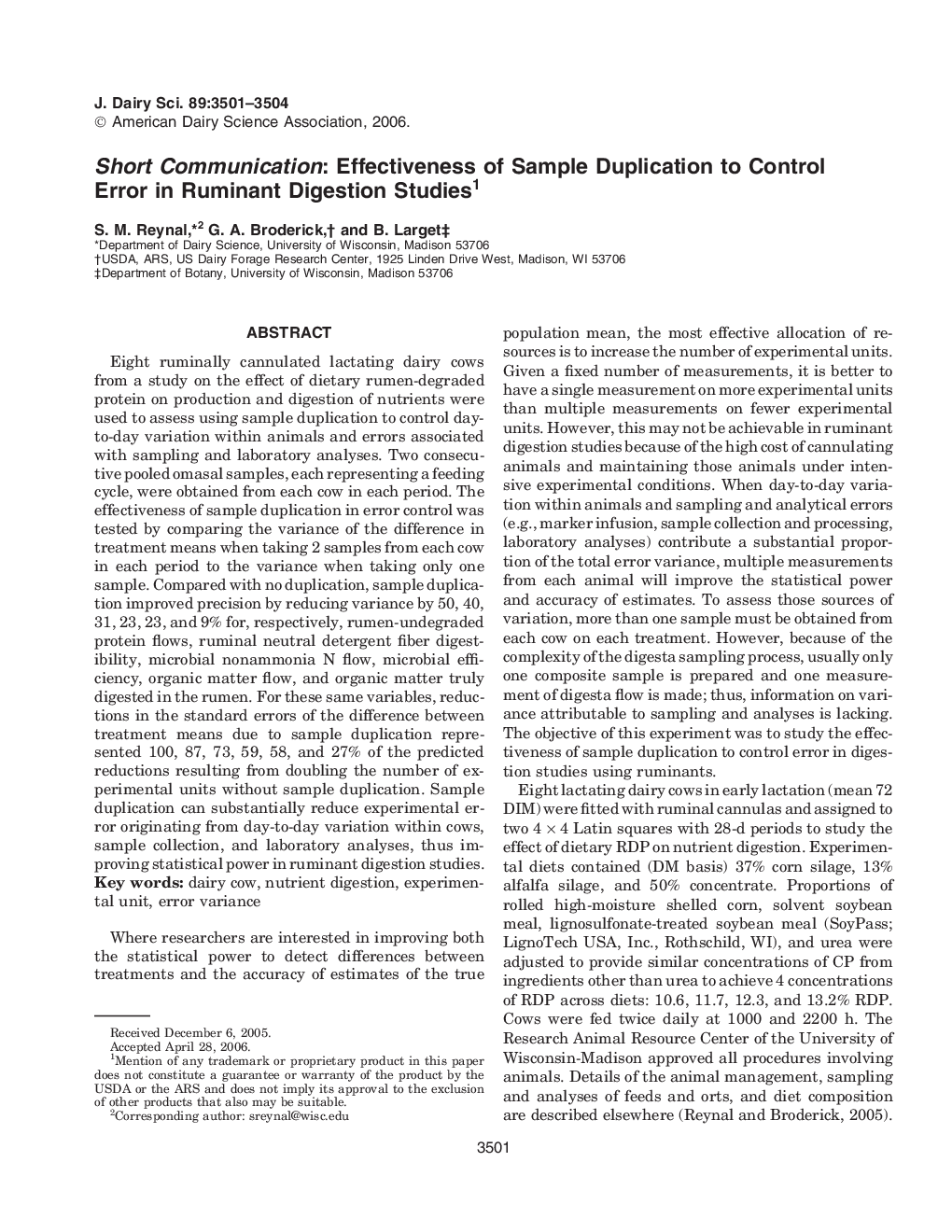| Article ID | Journal | Published Year | Pages | File Type |
|---|---|---|---|---|
| 2441105 | Journal of Dairy Science | 2006 | 4 Pages |
Abstract
Eight ruminally cannulated lactating dairy cows from a study on the effect of dietary rumen-degraded protein on production and digestion of nutrients were used to assess using sample duplication to control day-to-day variation within animals and errors associated with sampling and laboratory analyses. Two consecutive pooled omasal samples, each representing a feeding cycle, were obtained from each cow in each period. The effectiveness of sample duplication in error control was tested by comparing the variance of the difference in treatment means when taking 2 samples from each cow in each period to the variance when taking only one sample. Compared with no duplication, sample duplication improved precision by reducing variance by 50, 40, 31, 23, 23, and 9% for, respectively, rumen-undegraded protein flows, ruminal neutral detergent fiber digestibility, microbial nonammonia N flow, microbial efficiency, organic matter flow, and organic matter truly digested in the rumen. For these same variables, reductions in the standard errors of the difference between treatment means due to sample duplication represented 100, 87, 73, 59, 58, and 27% of the predicted reductions resulting from doubling the number of experimental units without sample duplication. Sample duplication can substantially reduce experimental error originating from day-to-day variation within cows, sample collection, and laboratory analyses, thus improving statistical power in ruminant digestion studies.
Related Topics
Life Sciences
Agricultural and Biological Sciences
Animal Science and Zoology
Authors
S.M. Reynal, G.A. Broderick, B. Larget,
